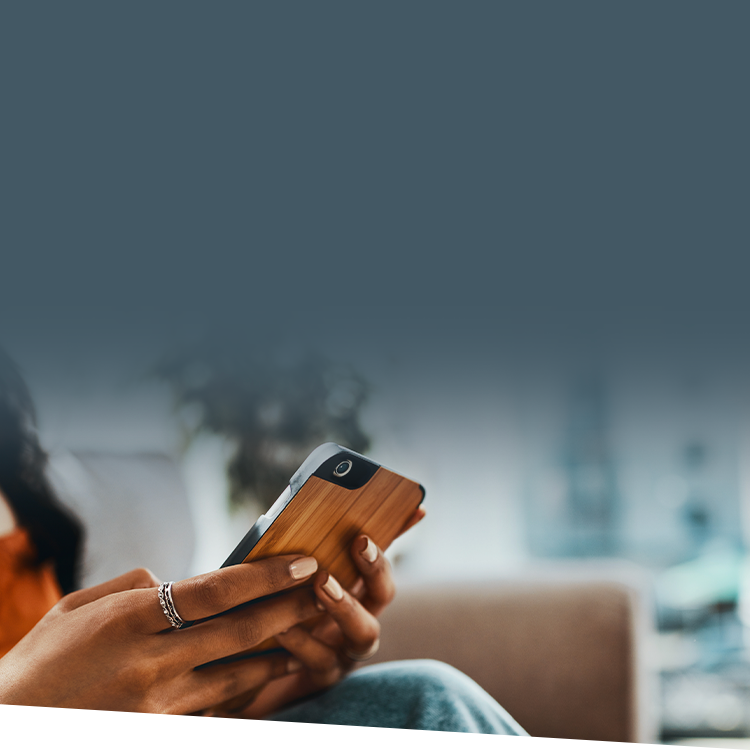Are you reading this article on your mobile device or desktop computer? How many minutes or hours would you guess you have been on your phone today? It couldn’t be too long, right?
On average, people use their phones for almost five hours each day. Since the start of the pandemic, mobile phone use has increased exponentially. We’ve grown accustomed to retreating into our phones, but this isn’t a healthy habit. Here’s why.
Health and Well-Being
Studies suggest excessive smartphone use is associated with depression, anxiety and social anxiety, low self-esteem, low psychological well-being, and low mental health.
Phones help keep us connected; they entertain us and make life more efficient. It’s unrealistic to suggest you throw your phone away. But, consider the benefits of using your phone more mindfully. According to Berkeley’s Greater Good Science Center, reducing screen time can improve your sleep, deepen your connections with others, and allow you to be more present.
On average, 85% of smartphone users check their devices even when they’re engaged in conversation with someone. Instead, when you’re talking to someone, actively listen and remain present. This helps you engage more deeply in the conversation and build the relationship.
Mindfulness
If you’re not in a social setting—maybe you’re sitting through a presentation or attending an in-person workshop—put your phone on silent. You can also try incorporating a mindfulness practice to help you remain focused. Research shows a mindful practice of any kind can improve memory, physical health, and relationships, while also reducing stress.
Mindfulness is a type of meditation in which you focus on being intensely aware of what you're sensing and feeling in the moment, without interpretation. To practice mindfulness, bring awareness to your body and breath. Think about how your feet feel on the floor. Lower your shoulders—drawing attention to your breath, inhaling and exhaling for a few cycles. This practice helps you become centered in just a few minutes. Return to this practice several times a day for short periods whenever you’re feeling overwhelmed or disconnected.
(Pro tip for educators: Start each class with a moment of mindfulness. If you’re an administrator, encourage your staff to do the same!)

Tune in to ask questions related to this Source article or other topics you've encountered lately.
Visit our NEW Community and start posting.
Healthy Habits
Breaking the habit of excessive smartphone use may feel overwhelming, especially with all the buzzing, dinging, and chiming—it is nearly impossible to ignore your phone. But doing so is good for your overall health and well-being. Here are a few tips to break your incessant phone checking habit.
- Turn off notifications on most apps. Your Instagram likes will be there the next time you check.
- Is social media making you feel irritated or jealous? Delete the app and see how long you can go without it.
- Turn on the “do not disturb” feature for long stretches during the day. Don’t worry, you can designate emergency contacts who can still reach you, such as your spouse or partner, parents, or your child’s school.
- Remove work email from your phone. This suggestion might be the hardest of all. If you must use a clunky web browser to check your school email, you will check it less often. On the same note, set boundaries for school email. Set a time to stop checking email and stick to it—this includes not responding to work emails on the weekends.
- Stop and ask yourself, “Why am I picking up my phone?” When you take time to notice your reflex to check your phone at a red light or wait in line at the pharmacy, ask yourself if there is a purpose or if it is just a habit.
- Don’t charge your phone on your nightstand. Most people want their phone in their bedroom at night in case of emergency calls or as an alarm clock. Charge your phone as far away from your bed as possible. You will be less likely to check your phone first thing in the morning if you must get out of your comfortable bed to pick it up. It can also help to ensure you stay awake if you have to get out of bed and walk over to turn off your morning alarm, rather than just reaching over and hitting snooze.
If you’re dedicated to breaking the habit and unplugging, hold yourself accountable and get someone involved. Tell them about the research on unplugging and that you are attempting to use your phone less. Best wishes on your unplugging journey … Now put the phone down and make a nice cup of coffee or tea.





